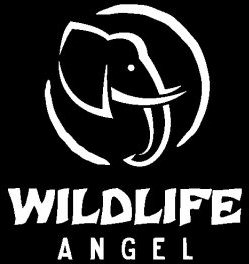At least two ministers and a senior official in the northern region were probably involved in poaching activities on rhinos and elephants in the Etosha National Park.
The Executive Director of Namrights, a Namibian NGO whose mission is to uphold human rights in the country, Phil Ya Nangoloh, said to have made shocking discoveries during an independent investigation into a matter of not respecting the human rights in a case which had a connection with rhino poaching during the months of June and July of this year.
Although Mr. Ya Nangoloh doesn’t want to disclose the names of the three politicians involved in trafficking, he confirmed that his findings had been communicated to the head of the Namibian Police, Inspector General Sebastian Ndeitunga.
“I conducted this inquiry for reasons of transparency. The communities from the villages around the park complained they were victims and they reported to Namrights the problems they had with regard to human rights. I am a responsible citizen and I thought that the police would be interested in this information affecting our citizens. According to my findings, not only very senior government officials are involved, but also many people in the Omusati region around Okahao are responsible for extortion for poaching operations inside the park to Etosha.”
According to him, ordinary vehicles were used to transport the loot, consisting of rhino horns and elephant tusks, from Etosha to Ohakao, and from there, vehicles from the “presumed barons” from the government recovered the horns and tusks to bring them to Swakopmund and Walvis Bay and return them to the German and Chinese buyers.
VIP government vehicles have been used, according to him, because they cannot be searched at checkpoints (police checkpoints).
“Ya Nangoloh added that the extortion is used on the poor population of Bushmen (note: who are the left out of various ethnic groups in Namibia!) to engage them in the slaughter of animals. The Bushmen are famous indeed for their great ability to hunt down and approach wild animals. Some are under pressure to follow them and kill rhinos and elephants against a remuneration of a few hundred euros. The findings in the report also show that the poachers have worked with the park rangers, belonging to the Nature Preservation, to get horns and ivory in Etosha. ”
And the director of Namrights to simply add:
“This investigation, however, will lead nowhere because high political officials are involved. This survey will suffer the same fate as many others, as corruption is at such a level in this country. I sincerely believe that the Inspector General Ndeitunga wanted to get to the bottom of this matter, but his hands are tied. He is a very good professional, but he was also appointed by politicians, and we cannot forget this. ”
All this dark affair of corruption and extortion against the background of protected wildlife trafficking reminds us that story of policemen from Oshana (northern city of the country near Etosha), from where the Regional Commander was sent to retirement earlier than expected. Rumors had circulated for a long time in Windhoek (the capital of the country) on the fact that he was kicked out of the police because of his alleged involvement in the scandal of poaching in the park.
While I am writing this article I have just received additional information, always on the same subject, from a Namibian journalist investigating since many years on the trail of organized crime in Namibia. Apparently he has major information to communicate.



